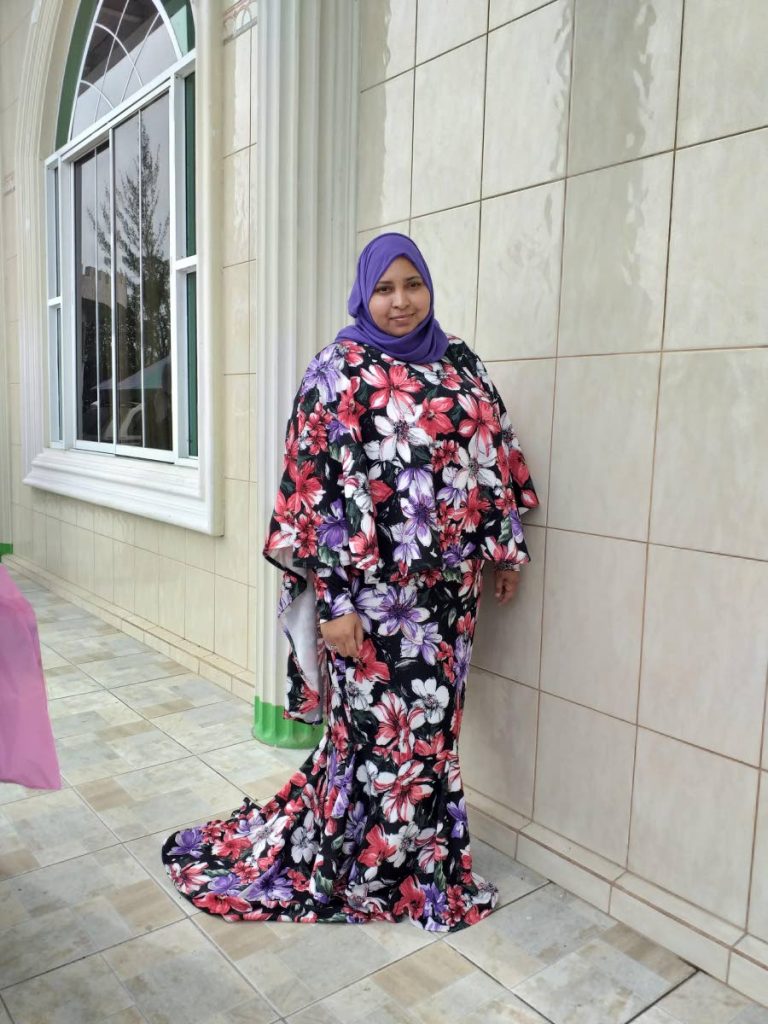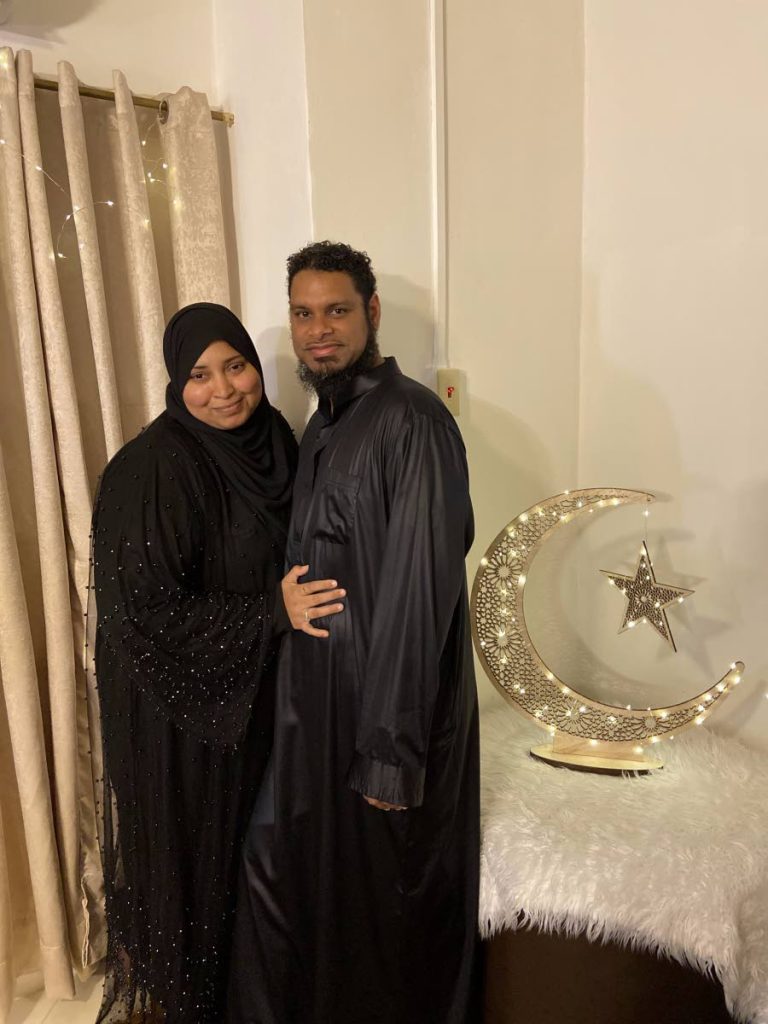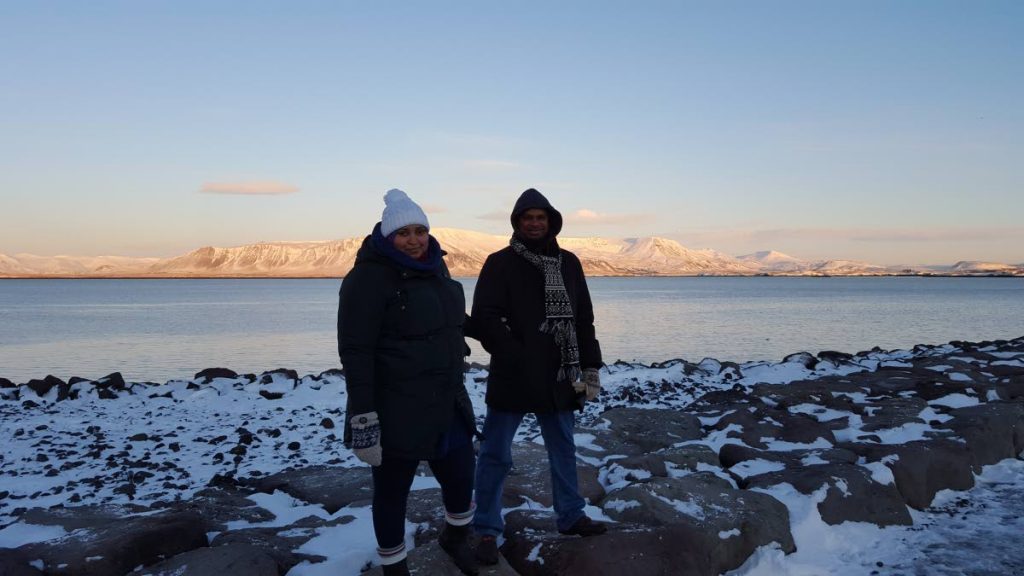Aabida Allaham: A life charted by Islam

Aabida Allaham is an explorer at heart and can mark off many places on the globe that she has visited.
But for her, the map charted by the strict guidelines of Islam is of equal, if not more, importance.
“I see it as a map to a fair and decent life for me, and those around me,” she said of the religion she has been practising all her life.
“I was born a Muslim. My father’s family are Muslims from off the boat. So is my husband’s. My brother, Maulana Ishmael Allaham, is currently the assistant imam at the ASJA complex in Charlieville, where we usually go for Eid and other occasions.”
Islam has frequently been described as a religion that oppresses women, but a very vocal Allaham told WMN she views it as quite the opposite.
“Islam has historically been proven as giving rights to women. For instance, long before mass society gave women the right to own property, Islam made this mandatory. Islam also made it mandatory to educate your girl children, and my favourite teaching – one my husband insists I use conveniently – is that Islam says a woman’s money or income is her own, while her husband must also provide for her. Of course, society tells us that we should be equal partners when it comes to finances, but it's always good to know I don’t have to share,” she chuckled. “It’s done out of the goodness of our hearts, and women have really big hearts.”
Allaham believes Arab culture and tradition are the main reasons why Muslim women have been perceived as oppressed, but said it is not what the Qur'an teaches.
“And it’s certainly not what I believe or have been taught…Because of the complexities caused by mistaking cultural norms as religion, we have people who believe Islam is oppressive to women – but they are only looking at the hijab.”
She said in Islam, men and women are seen as moral equals by Allah, and the same duties are expected of them as regards worship, prayer, faith, donations, fasting, and the holy pilgrimage to Mecca.
“Islam generally improved the status of women compared to earlier Arab cultures, prohibiting female infanticide, which we all know was quite prominent in China most recently, and recognising women as a person who should be treated fairly.”
She said Islamic law also guarantees women’s rights of inheritance and the management of property.
Allaham, 37, has been married for close to two decades, but has chosen to retain her birth name – an obligation she said Islam doesn’t force on women. In August she and her husband Iran Emamdeen will celebrate their 18th wedding anniversary.
“Yes, his name is different than mine. Islamically, I was not obliged to change, and also the rebel inside me didn’t want to…
"I got married at 19. Young, I know. But I wouldn’t have had it any other way. Islam tells you to avoid sin, and dating can only lead there, if you know what I mean. Everyone isn’t as fortunate, I know, but I thank God every day for blessing me.”
She said the fact that she and her husband share the same beliefs makes the marriage journey more memorable.

Allaham, a former journalist, is the brand communications official at Republic Bank.
“After leaving the media in 2012, I went into public relations.”
She has also dabbled in creating children’s clothing through her online custom boutique, Allerkleinsten.
“But it's been a while since I had time for that. Hopefully I can pick it back up again soon.”
As a journalist she covered general news, but specialised in health, agriculture and social issues, including education.
“I made great friends, connections and learnt a lot. But life has a funny way of making you pivot” – a word that took on a life of its own over the past year. “And that’s what happened. An opportunity came my way to try something new, and I took it. When I think about it now, I probably do that a lot,” she said with a laugh.
She recalls her early days in the media, when she encountered the misconception about Islam and its treatment of women. Some of the men in the newsroom would make comments about how she should be “barefoot and pregnant,” or that she should always get her husband’s permission before doing anything. And although she knew they meant no harm, it was indicative of the misinformation about the teaching of Islam out there.
“I tend to speak my mind…and I definitely don’t always follow my husband’s lead,” Allaham said.
Last year, Muslims around the world observed the month of Ramadan and celebrated Eid-ul-Fitr within the confines of restrictions imposed by the covid19 pandemic. This year is pretty much the same.
“I usually tend to put a lot of emphasis for Eid into spending it with my family. So last year, I was still able to get all nine of my siblings, including those with spouses, over for dinner, gift exchange and some games. We had a really good time trying TikTok trends, which was all the rage then, and eating our bellies full.”
Usually, as the eldest and as a woman, she ends up doing the lion's share of prepping food, cooking, cleaning and decorating at her Chaguanas home.
“And honestly, I don’t mind. I like to ensure my loved ones enjoy themselves, and as a Muslim woman, that is important. But this year, I’m letting my sisters do all the work at their homes.
“We’re at home, so we’ll be using that time to make memories with each other. My brother would most likely give a speech, we’d pray at home, get dressed up and just spend the time with each other, enjoying the moments we have.”
One of her biggest disappointments in being confined to home for Eid, though, is the fact that she won’t get to show off her “amazing” new dress.
“I mean, which girl wouldn’t be disappointed? But in all seriousness, I understand that these restrictions are meant to keep us safe and alive.”
Allaham is pro-vaccine and is very disturbed by paranoia being caused by the misinformation that has been circulating about the covid19 vaccine.

"I can’t believe there are people who think they are putting microchips in you via the vaccine.”
As far as she is concerned, the government is doing the best it can in handling the pandemic, at least in most instances.
“Sometimes we just can’t understand the decisions, but we have to trust it’s in our best interest.
"Do I wish they would give Trinis abroad more exemptions? One hundred per cent yes. I have family members stuck in the UK, whose daughter is supposed to be writing SEA in June, and I wish they could get a flight back. They have been fully vaccinated by the NHS (UK National Health Service) and still can’t get an exemption.”
And after over a year of having the work-from-home arrangement blur the lines between her domestic and professional responsibilities, Allaham said she still hasn’t been able to find what many people refer to as a “balance.”
“Is there even such a thing as balance? I think this pandemic has only amplified my work responsibilities. With change, there is a great need for communication, and that’s my job.”
Of course, she said, the arrangement has its advantages, among them avoiding the commute to and from work and having to get dressed up for work.
“I only recently started to train myself to turn off, to spend time in the present and make some memories…get off the sofa and go outside.”
In January she and her husband began actively exploring TT on weekends.
“We hiked Mt Tabor, swam in the Nylon Pool, road tripped to Icacos, waddled our way to Avocat Falls, trekked to Paria, climbed Blue Basin and so much more.”
They took a break during Ramadan, but once it’s over they intend to resume hiking. And once the borders are open, “I just need to hop on a plane and head somewhere new.
"But I think by the time that happens, I would have been to every corner of TT.”

Comments
"Aabida Allaham: A life charted by Islam"